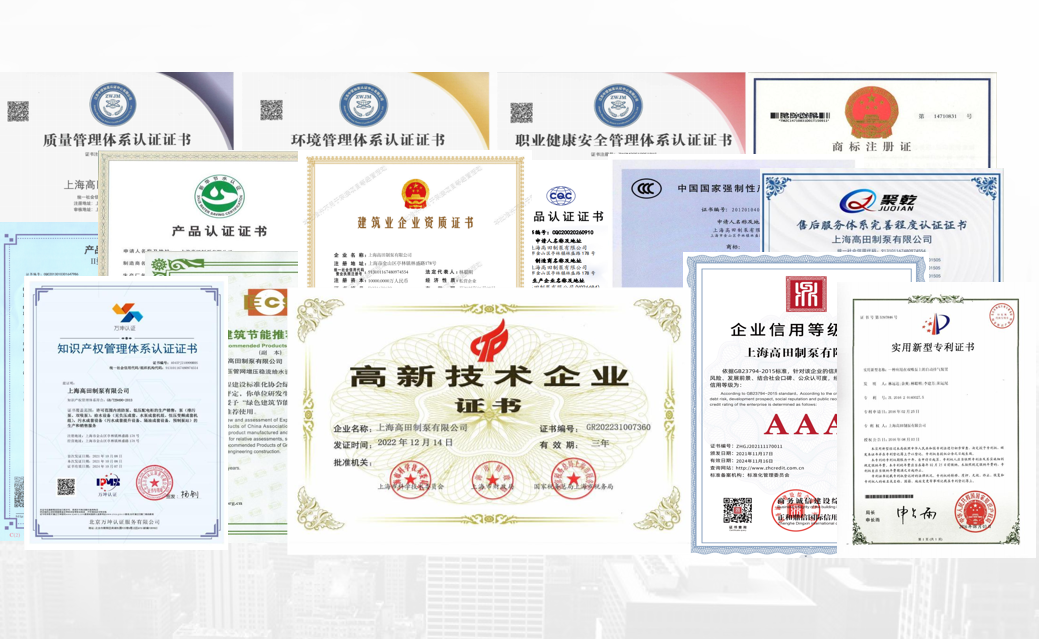International standards and certification process for pumps
The international standards and certification process of pumps involve many aspects. The following is a brief overview of this:
International standards for pumps
International standards for pumps are mainly formulated by multiple international organizations and standardization agencies, such as the International Electrotechnical Commission (IEC), the American Manufacturers Association (AGMA), the German Institute for Standardization (DIN), and the American Society of Engineers (ASME). These standards cover the model, material, performance and other aspects of the pump.
Model standard: For example, the IEC standard specifies the coupling size of the motor and the pump to facilitate the interchangeability of products from different manufacturers.
Material standard: For example, the International Organization for Standardization (ISO) standard specifies the medium temperature, pressure, flow rate and other factors to be considered when selecting pump materials to ensure the safety and durability of the pump.
Performance standard: For example, the IEC standard specifies the test scope and method of the pump, the processing of test data, etc., to help users evaluate the performance indicators of the pump.
Certification process

The certification process for pumps varies depending on the target market and certification agency, but generally includes the following steps:
Select a certification agency: According to the product characteristics and target market, select a certification agency that meets the requirements for cooperation.
Submit application: Submit the pump certification application to the certification body and provide product-related information, such as product specifications, instruction manuals, technical drawings, etc.
Product testing: The certification body will test the pump to verify whether it complies with relevant international standards and regulations. The test content may include performance testing, safety testing, electromagnetic compatibility testing, etc.
Factory inspection (if applicable): Some certifications may require inspections of the production plant to ensure that the production process complies with relevant quality management system requirements.
Audit and certification: The certification body reviews the application materials and test reports, and if there are no problems, it will issue the corresponding certification certificate.
The international standards and certification process for pumps are important means to ensure the quality and safety of pump products. By following international standards and obtaining relevant certifications, pump products can be more widely recognized and accepted in the global market. At the same time, this also puts higher requirements on pump manufacturers, requiring them to continuously improve product quality and technical level to meet market demand.




